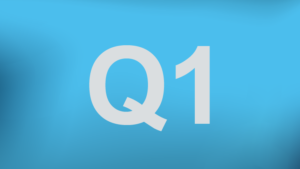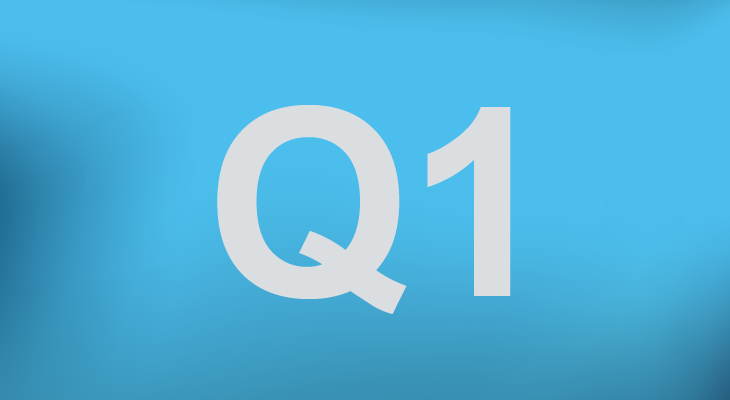 Below are some highlights from first quarter 2021 earnings reports recently released by biologics and biosimilars companies:
Below are some highlights from first quarter 2021 earnings reports recently released by biologics and biosimilars companies:
- At the end of last month, Biogen reported total quarterly revenues of $2,694 million, reflecting a 24% decrease versus the prior year’s first quarter. As reported by Biogen, this decrease reflects increased competition in the biosimilar space. Among the recent events, Biogen noted that in the first quarter of 2021, Biogen submitted Marketing Authorization Applications for aducanumab to Agência Nacional de Vigilância Sanitária (the National Health Surveillance Agency) in Brazil, Health Canada, the Therapeutic Goods Agency in Australia, and Swissmedic in Switzerland. Biogen is collaborating with Eisai on this development of adacanumab, as well as the development of lecanemab. Biogen also reported that in April 2021, the European Commission granted marketing authorization for a subcutaneous injection of TYSABRI® (natalizumab) to treat relapsing-remitting multiple sclerosis. Biogen and Bio-Thera Solutions, Ltd announced that same month that they entered into a commercialization and license agreement to develop, manufacture, and commercialize a proposed biosimilar referencing ACTEMRA® (tocilizumab).
- At the end of last month, Johnson & Johnson reported fourth quarter sales of $22.3 billion reflecting growth of 7.9%. Johnson & Johnson noted that pharmaceutical worldwide sales grew 9.6% and was driven by several products including its biologics STELARA (usketinumab), DARZALEX (daratumumab), ERLEADA (apalutamide), TREMFYA (guselkumab), and INVEGA SUSTENNA/XEPLION/INVEGA TRINZA/TREVICTA (paliperidone palmitate), and that the growth was partially offset by, among other things, biosimilar competition for REMICADE (infliximab) and U.S. ZYTIGA (abiraterone acetate).
- Also at the end of April, Amgen reported a total revenue decrease of 4% to $5.9 billion in comparison to the first quarter of 2020. Amgen noted that this decrease was driven by lower net selling prices and the continuing negative effect of COVID-19 on patient visits and diagnoses, partially offset by volume growth. In particular, Repatha® (evolocumab), Prolia® (denosumab), MVASI® (bevacizumab-awwb) and KANJINTI® (trastuzumab-anns) all sustained volume growth of double digits or more. Amgen reported that its Phase 3 study is ongoing for ABP 959, a biosimilar candidate to SOLIRIS® (eculizumab), and that Amgen is enrolling patients for Phase 3 studies of ABP 654, a biosimilar candidate to STELARA® (ustekinumab), and ABP 938, a biosimilar candidate to EYLEA® (aflibercept).
- At the beginning of May, Coherus BioSciences reported GAAP net loss of $173 million for the first quarter of 2021, which it states was primarily driven by the $145 million upfront payment to Junshi Biosciences for U.S. and Canada rights to the anti-PD-1 antibody toripalimab. Coherus stated that its net product revenue of $83 million consisted of net sales of UDENYCA® (pegfilgrastim-cbqv), which maintains a 20% share of the overall pegfilgrastim market. Coherus notes that it has several biosimilar pipeline product candidates, including a biosimilar to Lucentis® (ranibizumab), a biosimilar to Humira® (adalimumab), and a biosimilar to Avastin® (bevacizumab).
- Also at the beginning of May, Pfizer reported quarterly revenues of $14.6 billion reflecting 42% operational growth. Pfizer cited biosimilars as one factor driving growth, noting that “[b]iosimilars…grew 79% operationally to $530 million, primarily driven by recent oncology monoclonal antibody biosimilar launches of Ruxience (rituximab), Zirabev (bevacizumab) and Trazimera (trastuzumab) globally, as well as continued growth from Retacrit (epoetin) in the U.S.”
- Last week, Viatris Inc. reported quarterly revenues of $4.4 billion, including $163 million in new product revenue, for the first quarter of 2021. Viatris noted that its Complex Generics and Biosimilars division grew by 27% compared to combined adjusted Q1 2020 results, largely driven by Pegfilgrastim, Trastuzumab and Adalimumab biosimilars.
- On Monday, Gland Pharma reported quarterly revenues of ₹8.8 billion ($121 million in USD) reflecting growth of 40% as compared to the corresponding quarter of 2020. Gland noted that its growth was driven by new product launches, volume growth, and geographic expansion, and that its new vaccine business is expected to accelerate Gland’s growth in the biosimilar space.

